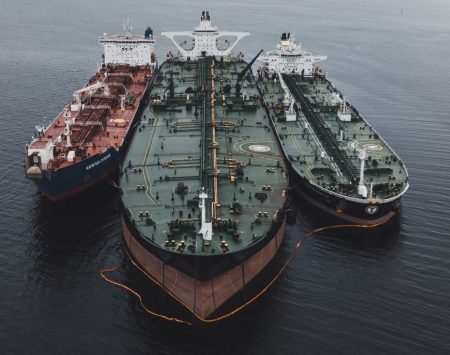In the week to August 27th, Russian crude oil shipments skyrocketed by an average of 880,000 barrels per day (bpd), adding up to 3.4 million bpd, according to tanker tracking data presented by Bloomberg News. It is reportedly the highest figure in eight weeks.
According to the data, the four-week numbers, which strip out some volatility to show overall trends more accurately, showed an increase of 40,000 bpd. Shipments to customers in Asia, including cargoes with no final destination listed, increased to 2.57 million bpd over the reporting period, from 2.53 million bpd for the period to August 20th. According to the report, of the cargoes without an initial destination, most will eventually end up in India.
Of Russia’s shipments to Europe, Bulgaria was the sole destination, receiving 125,000 bpd over the 28 days to August 27th. In the four weeks to August 27, no crude was shipped to northern European countries, according to the news outlet, which added that over the period, Russia exported about 156,000 bpd to its only remaining Mediterranean customer, Türkiye.
Bloomberg wrote, “Despite last week’s jump, the figures support the notion that Moscow is now honoring a pledge to keep supply off the global market alongside its allies in the OPEC+ producer coalition.”
The outlet noted that Russian Deputy Prime Minister Aleksandr Novak had said earlier this month that Moscow was extending its reduction in exports into September, after Riyadh had made a similar announcement. According to Novak, Russia would reduce the size of its reduction in exports from 500,000 bpd to 300,000 bpd.
In response to Western sanctions, which have seen the EU cease accepting Russian seaborne crude, Russia has moved to diversify its energy supplies. In February, Russian announced it would voluntarily reduce its oil exports by 500,000 bpd compared to February’s average, beginning in March. The move was retaliation against the West for its imposition of sanctions designed to attempt to make the energy market either inaccessible or unprofitable for Russia. At the same time, the Kremlin also announced it would cease offering energy products to countries which sought to comply with a $60 per barrel price cap the Western powers sought to impose on all Russian oil sales by leveraging Western control over shipping services such as insurance and brokerage services for seaborn cargoes.


